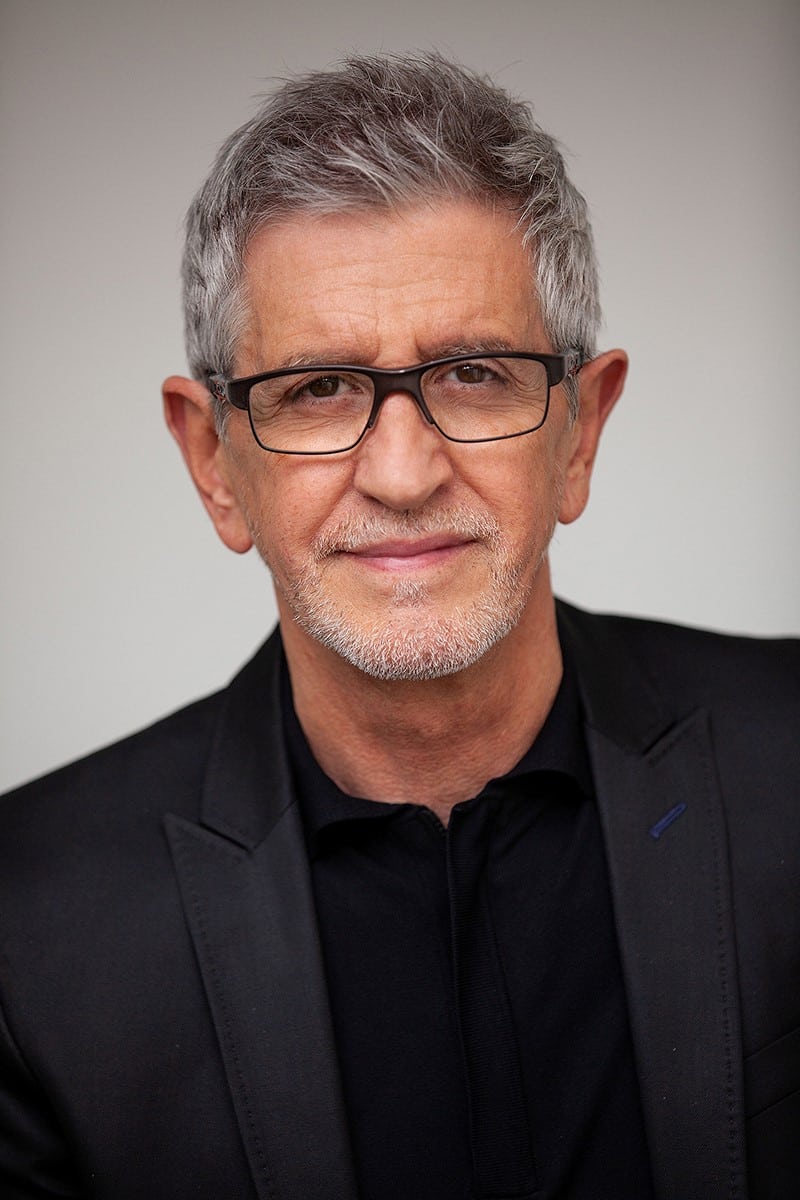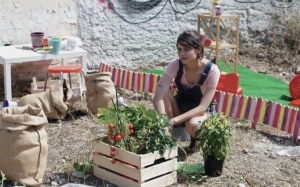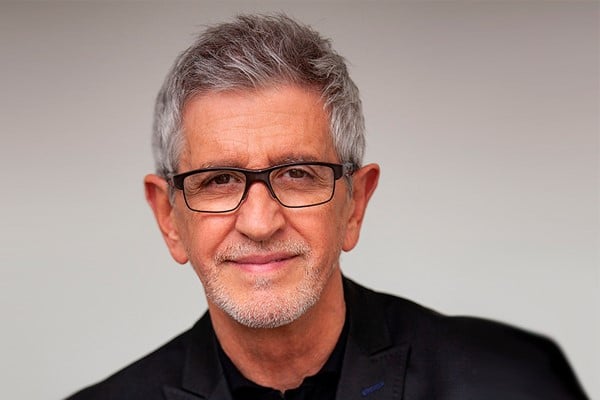The author of “En la ciudad sin límites” (‘In the city without limits’) will star in the Castille and Leon Film Gala, which will be held on October 21. Once again, the cinema of the region will be the protagonist of sections Features From Castille And Leon and Shorts From Castille And Leon.

09/26/2019.- Filmmaker Antonio Hernández (Peñaranda de Bracamonte, Salamanca, 1953) will receive the Golden Honorary Spike of the 64th Valladolid International Film Week, in recognition of an extensive career that began in the seventies and coincides with the 40-year anniversary of the premiere of his first film, F.E.N. (1979), at our festival. The film was scheduled for competition in the Official Section of the 24th Seminci.
Antonio Hernández will receive the Honorary Spike on October 21 in the Castille and Leon Film Gala, during which there will be a screening of En la ciudad sin límites (2002), for which the filmmaker received the Goya award to the Best Original Screenplay.
The author of titles such as Lisboa (Lisbon) or El menor de los males (The Lesser Evil) finished high school at the San José de Calasanz school in Salamanca, and at 18 years he began taking his first steps with a super 8 mm movie camera. After moving to Madrid, he studied at the newly created Faculty of Information Sciences of the Complutense University. There he creates the film production company Micra Film together with several classmates. Within that company he wrote and directed his first short film, Soldado (Soldier) (1975).
Together with his brother, Avelino Hernandez, he produced two more short films, El arca de Noé (Noah’s Ark) and Gustavo y la modelo (Gustavo And The Model), and finally in 1979 they wrote and produced F.E.N., his directorial debut, which premiered in that year’s Seminci, and it was also included in the Berlin Festival and other contests around the world.
After his second feature film, Apaga… y vámonos (1981), he diversifies his professional activity and works both in radio and in filmmaking and television, making documentaries and advertisements. Ten years later, Jorge Martinez Reverte and Mario Onaindia entrust him with the direction of Cómo levantar 1.000 kilos (How To Lift 1,000 Kilos), an adaptation of the novel by the former entitled Gálvez en Euskadi. He then combined work as a dubbing director and advertising director until he began his collaboration with the film production company Zeppelin TV, for which he wrote and directed entertainment and fiction shows for more than eight years.
In 1999 he directed and co-wrote the feature film Lisboa, which granted Carmen Maura a nomination for the Goya Award for Best Actress and Sergi López the Biznaga for Best Actor at the Malaga Festival. In 2000 he participated in the creation of Zebra Producciones, with which he wrote and directed three feature films: El gran marciano (The great Martian) (2001), En la ciudad sin límites (2002) and Oculto (Hidden) (2005).
En la ciudad sin límites, which was included in the Spanish Cinema section of the 47th Seminci, was selected in Panorama of the Berlinale, and it also got five nominations in the Goya, including Best Director and Best Film. Eventually, the film won the statuettes in the category of Best Original Screenplay for Antonio Hernández and Enrique Brasó, and Best Secondary Actress for Geraldine Chaplin. In 2006, he directed the TV show Los Borgia for Antena 3. A year later, he directed the feature film El menor de los males, starring Verónica Echegui and Sergi Lopez, both awarded at the Malaga Festival.
Días sin luz (Lightless Days) (2009), Tarancón, el quinto mandamiento (Tarancon, the fifth commandment) (2010), Sofía (2011), Hoy quiero confesar (Today I want to confess) (2011), Capitán Trueno y el Santo Grial (Captain Thunder and the Holy Grail) (2011), La Fuga (The Getaway) (2012), Gran Reserva (2013), Gran Reserva, el origen (2013) and Seis hermanas (Six Sisters) (2015) are the titles of television shows and miniseries that he directed until Matar el tiempo (Killing Time) (2015), his latest feature film to date. Since 2016, he collaborates with Bambú film production company in the direction of TV showsTraición (Betrayal) and Las chicas del cable (Cable Girls).Among his upcoming projects are two new feature films: Parecido a un asesinato (Similar To A Murder), based on the novel by writer Juan Bolea, and Testamento, with his own script.
Cinema made in Castille and Leon also has a place in Seminci
The 64th Valladolid International Film Week will screen ten titles -three feature films and seven short films- linked to the Castilian and Leonese community, as a result of Seminci’s collaboration with the Ministry of Culture of Castille And Leon . These sections are also sponsored by El Norte de Castilla.
This year, Features From Castille And Leon will screen fiction films Mujeres de cristal (Glass Women), by Eliseo de Pablos, director of the European Cinema Showcase City of Segovia (MUCES), which tells the stories of five women played by themselves, and Zaniki, by Salamanca director Gabriel Velazquez, starring folk group Mayalde. In addition, there will be a screening of documentary Nous. El origen del pensamiento infantil (Nous. The origin of children’s thinking), by Henar Rodriguez, a professor at the University of Valladolid, and Christian Dehugo, a music composer from Valladolid, which shows and describes five-year-olds’ dialogues and thought processes on topics such as love, friendship, or freedom.

Shorts from Castille and Leon, a competition section that has its own jury composed of professionals from the audiovisual sector, will offer seven pieces of fiction: Amandine, by Juan Carlos Mostaza; Best Seller, by Max Lemcke; Muedra, by César Díaz Melendez (animation); Nuestra calle (Our street), by Clara Santaolaya; and Papa Cohiba, by Sara Rivero. In addition, last year’s two winning projects of the Seminci Factory prize will participate: Sin nombre, by Arturo Artal and Juan Carrascal, and Umbral, by Jelena Dragaš.
Along with these sections there will be, for the seventh edition, a session dedicated to presenting the short films selected this year by proyecto Quercus, an initiative of the Coordinator of Film Festivals of Castile and Leon (FECCYL), with the sponsorship of the Ministry of Culture and Tourism of Castille and Leon, whose aim is to give a national and international projection to short films made in this autonomous community.



























![Logo Foro Cultural de Austria Madrid[1]](https://www.seminci.com/wp-content/uploads/2024/09/Logo-Foro-Cultural-de-Austria-Madrid1-300x76.jpg)








